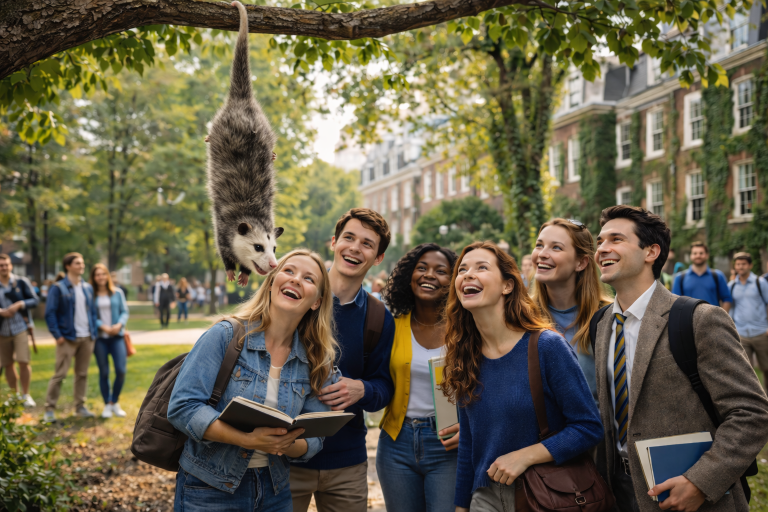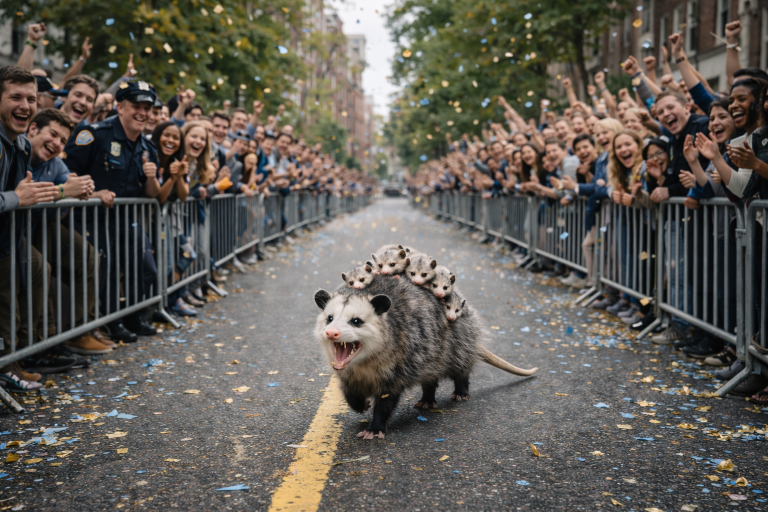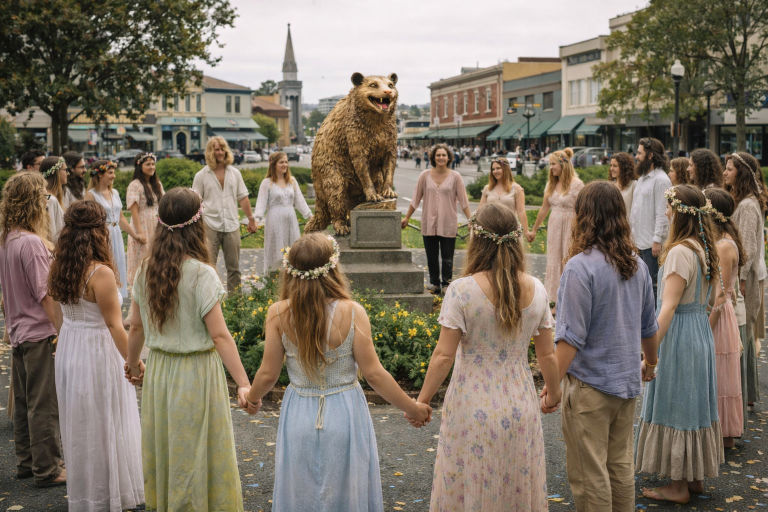Student Organizations at B.I. …
At Baitman’s Institute, student-led clubs are more than extracurricular; they are co-curricular extensions of curiosity, rigor, and selective eccentricity. Each organization is founded on the principle that exploration, however theoretical or implausible, is a vital component of the scholarly experience.
Whether tracking the nocturnal habits of campus wildlife, debating the etiquette of hunger, or observing chess games that never quite begin, our student societies offer space for intellectual fellowship and well-mannered speculation. Participation is voluntary, but legacy admission to certain clubs is quietly understood.
New clubs are chartered each semester through a brief proposal process and, when applicable, a ritual of moderate inconvenience.
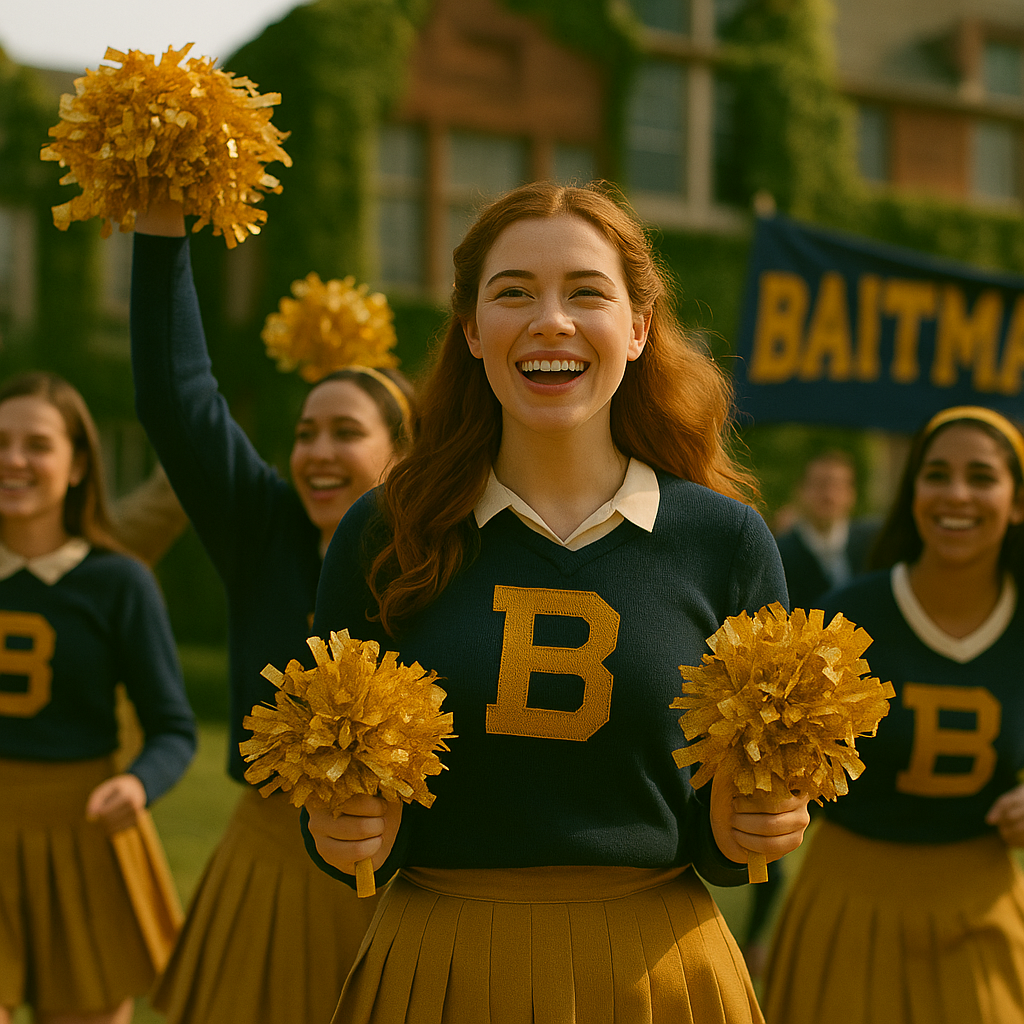
✧ Spirit Club
Since its charter in 1934, the Spirit Club has served as the official steward of Baitman’s collegiate fervor. With a mandate to cultivate dignified enthusiasm across all sanctioned athletic and ceremonial events, the club blends tradition with decorum; offering hand-sewn pennants, memorized cheers, and precisely-timed clapping routines.
Members are selected through an annual nomination process overseen by the Office of Ritual Affairs, and undergo a brief but meaningful oath ceremony. Weekly meetings are held in the West Pavilion to rehearse approved expressions of support and to review infractions related to unsanctioned jubilation.
Whether rallying behind the Possums or orchestrating applause at Founders’ Chapel, the Spirit Club remains an unwavering pillar of refined excitement.
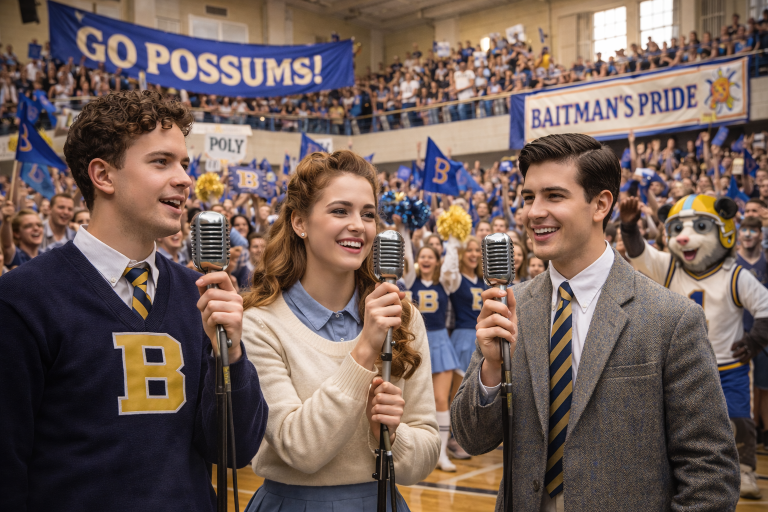
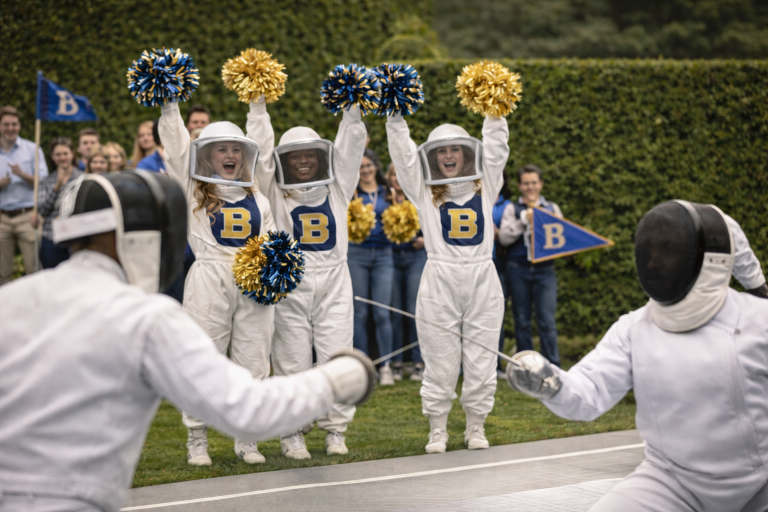
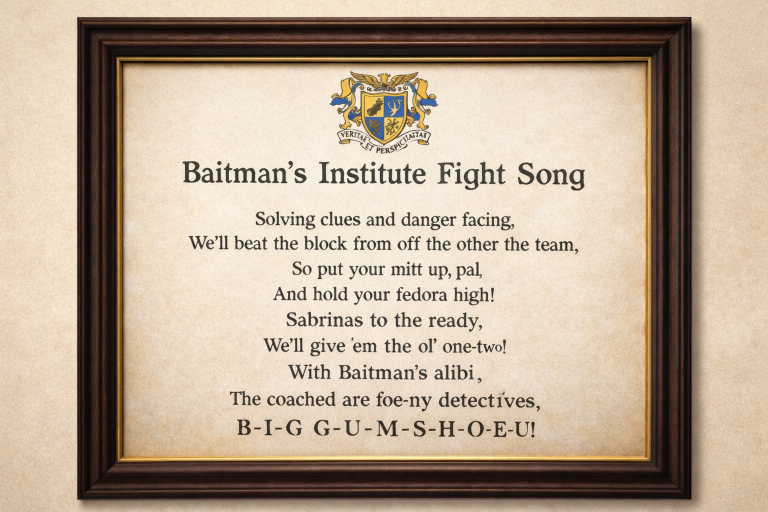
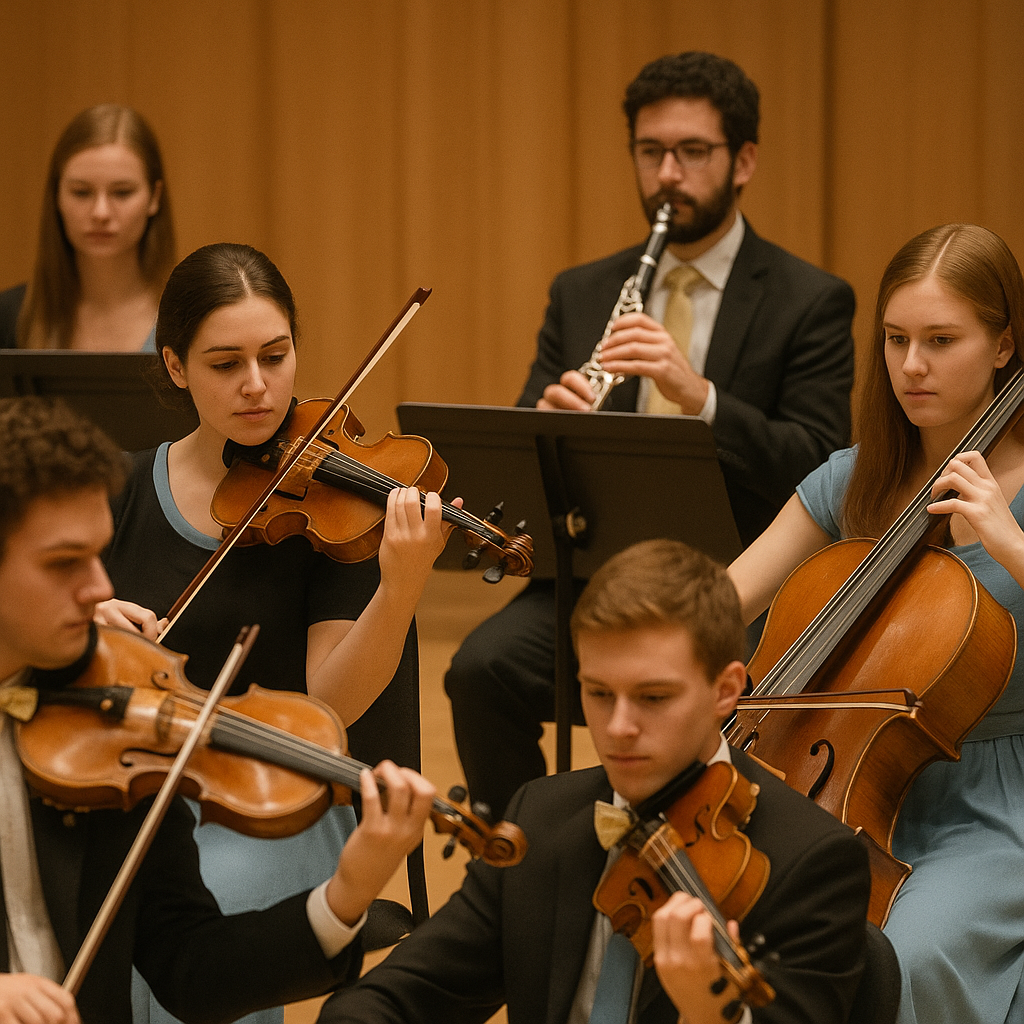
✧ The Conservatory Ensemble
Founded in 1904 as an answer to the “cacophony of unchecked dormitory whistling,” The Conservatory Ensemble is Baitman’s premier orchestral society. Open to formally trained musicians, interpretive instrumentalists, and those possessing what faculty refer to as “well-intentioned sound,” the Ensemble performs three seasonal concerts and an optional Spring Tuning Retreat.
Students may audition with any instrument recognized by the Department of Sonic Arts, including but not limited to violin, oboe, saw, glassware, and select forms of gravel. Rehearsals are held in the Lower East Auditorium, a climate-stabilized chamber tuned to C-sharp for acoustic integrity.
The Ensemble remains a vital cultural force on campus, beloved for its technical precision and its annual performance of Echoes in Fog: A Symphonic Reimagining of the Baitman’s Great Boiler Leak.
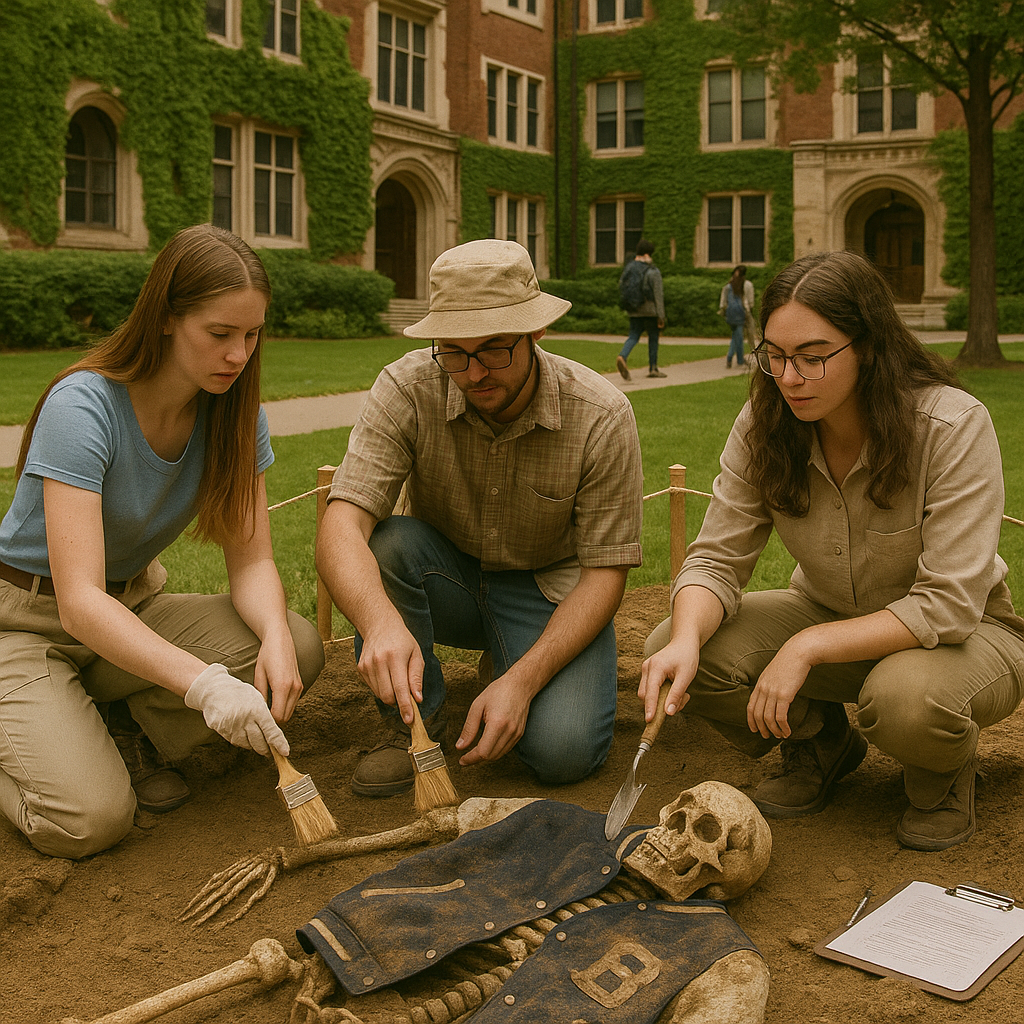
✧ Poly Historical Society
Established to preserve the legacy of Baitman’s Institute, the Poly Historical Society has since broadened its scope to include careful revision where context demands. Members engage in a range of scholarly activities, including oral history collection, archival restoration, and supervised excavation of historically ambiguous remains.
The Society gained notoriety after unearthing a fully-jacketed skeleton beneath the Central Lawn, believed to be either a former student-athlete from the 1950s or a ceremonial effigy used during early pep rallies. While debate continues, the find is now commemorated each year during Founders Reconsidered Week.
Membership is open to students with a demonstrated passion for institutional memory and the flexibility to adapt it.
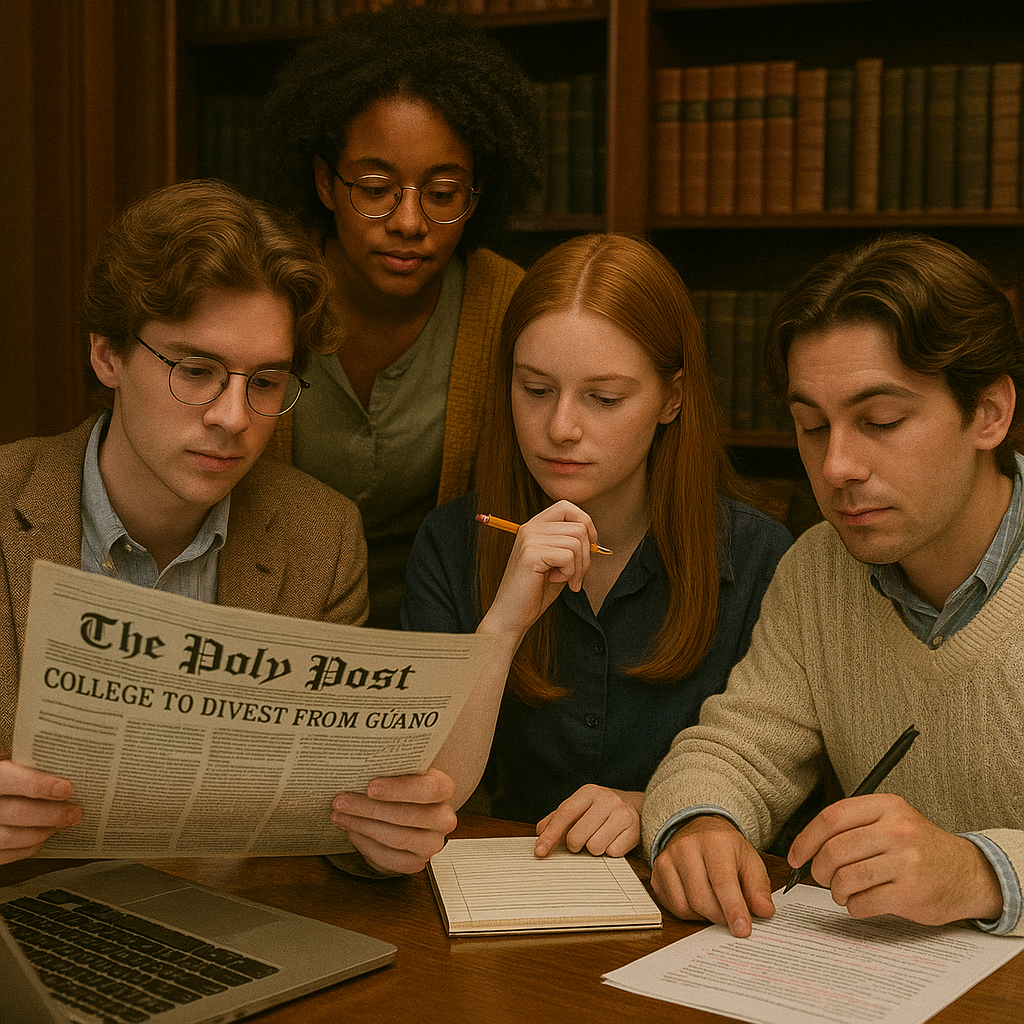
✧ The Poly Post Editorial Society
Charged with overseeing Baitman’s flagship student newspaper, The Poly Post, the Editorial Society meets thrice weekly in the Wallace Room to refine language, correct grammar, and occasionally invent both. Members are encouraged to read, write, or sit quietly with a red pen and an expression of grave discernment.
While journalistic integrity is considered aspirational, the Society is best known for its annual Style Guide Debate, in which members argue at length over the Oxford comma and whether “preposterous” carries bias. Past contributors have gone on to careers in publishing, law, and uncredited copywriting for regional cider companies.
Applications are accepted year-round in sealed envelopes with hand-addressed return slips. Typewritten preferred.

✧ Campus Observational Chess Club
Founded in 1983 during a weeklong rain delay in the Interhall Invitational, the Campus Observational Chess Club is devoted to the contemplative appreciation of chess as a performative and philosophical exercise. While many chess societies emphasize competition, this club favors presence, posture, and the dignified act of witnessing.
Members gather in designated courtyards and study lounges to observe ongoing or potential matches, evaluate spatial tension, and record theoretical gambits in embossed folios. The annual Stareship Tournament, notable for its complete absence of declared winners, remains one of the most well-attended passive sporting events on campus.
Though play is rare, the intellectual rigor is not. The club offers elective credit through the Department of Selective Engagement and occasionally collaborates with the Conservatory Ensemble for joint performances in Silence and Strategy.

✧ Basement Theatre Collective
Tucked within a gently repurposed maintenance corridor beneath North Tower, the Basement Theatre Collective serves as Baitman’s primary laboratory for student-devised performance. Entirely student-written, directed, and, on occasion, remembered, its productions are known for their raw immediacy, interpretive boldness, and strategic disregard for narrative convention.
Seating is fluid, lighting is largely improvisational, and performance schedules remain flexible to the point of abstraction. Audience members are encouraged to arrive early, or late, and to maintain an open mind regarding beginnings, endings, and entrances.
Notable past works include The Faucet That Cried Twice, Scene Change (Unscheduled), and the critically examined yet never formally concluded Waiting for Coach. Entry to the space is permitted only with a faculty-issued lantern or a demonstrated sense of purpose.
Auditions occur year-round and are frequently mistaken for fire drills.
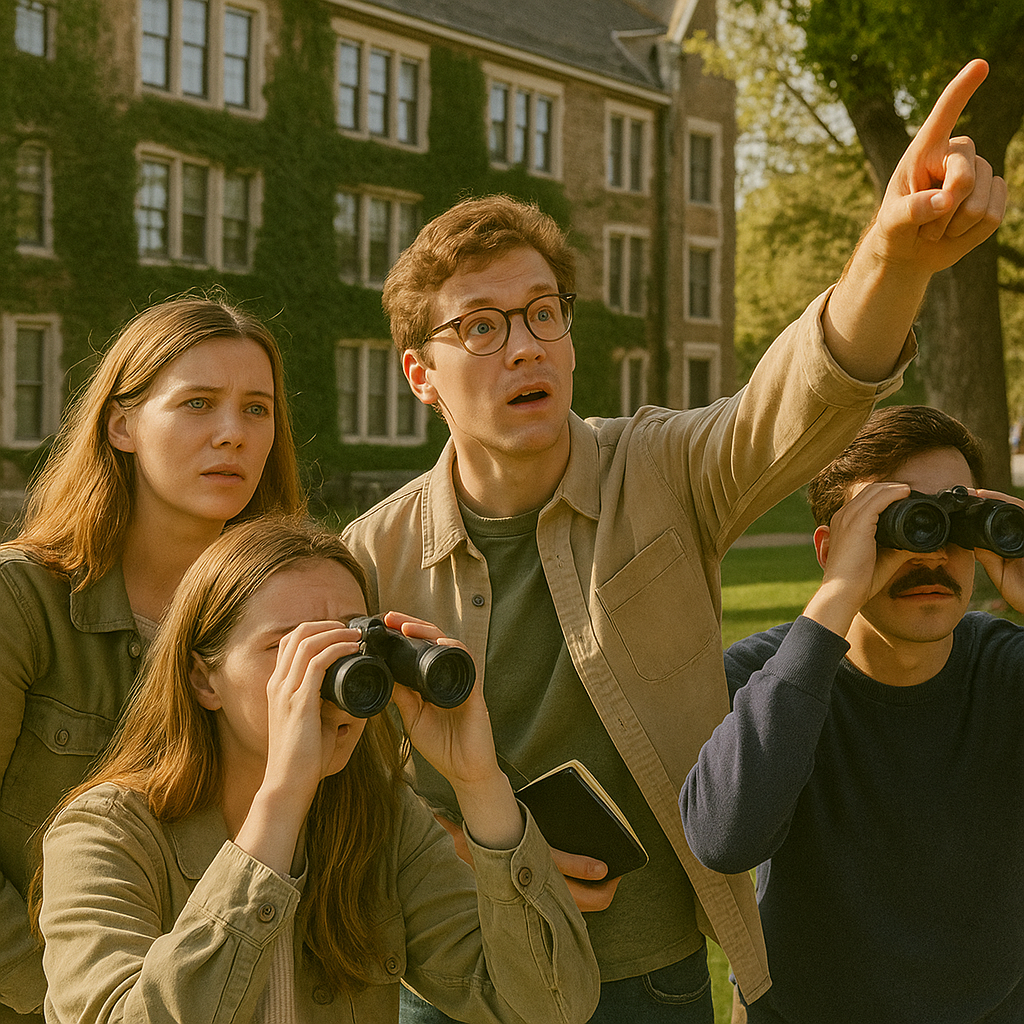
✧ Theoretical Birdwatchers Association
Established in 1998 by a group of students seeking a more conceptual approach to ornithology, the Theoretical Birdwatchers Association is devoted to the careful study of birds in principle. While traditional birdwatching clubs focus on identification and observation, members of TBA engage with the idea of birds; where they might be, what they could be doing, and how one might know if one had seen one.
Weekly sessions include guided outdoor speculations, peer-reviewed field notes, and occasional binocular drills. Members are encouraged to maintain observational journals detailing sightings, near-sightings, or the persistent absence of birds in areas where birds might typically be expected.
The club is ideal for students interested in natural sciences, abstract reasoning, and the comforting notion that birds may, in some locations, continue to exist. No prior experience in birdwatching is required. Only belief.
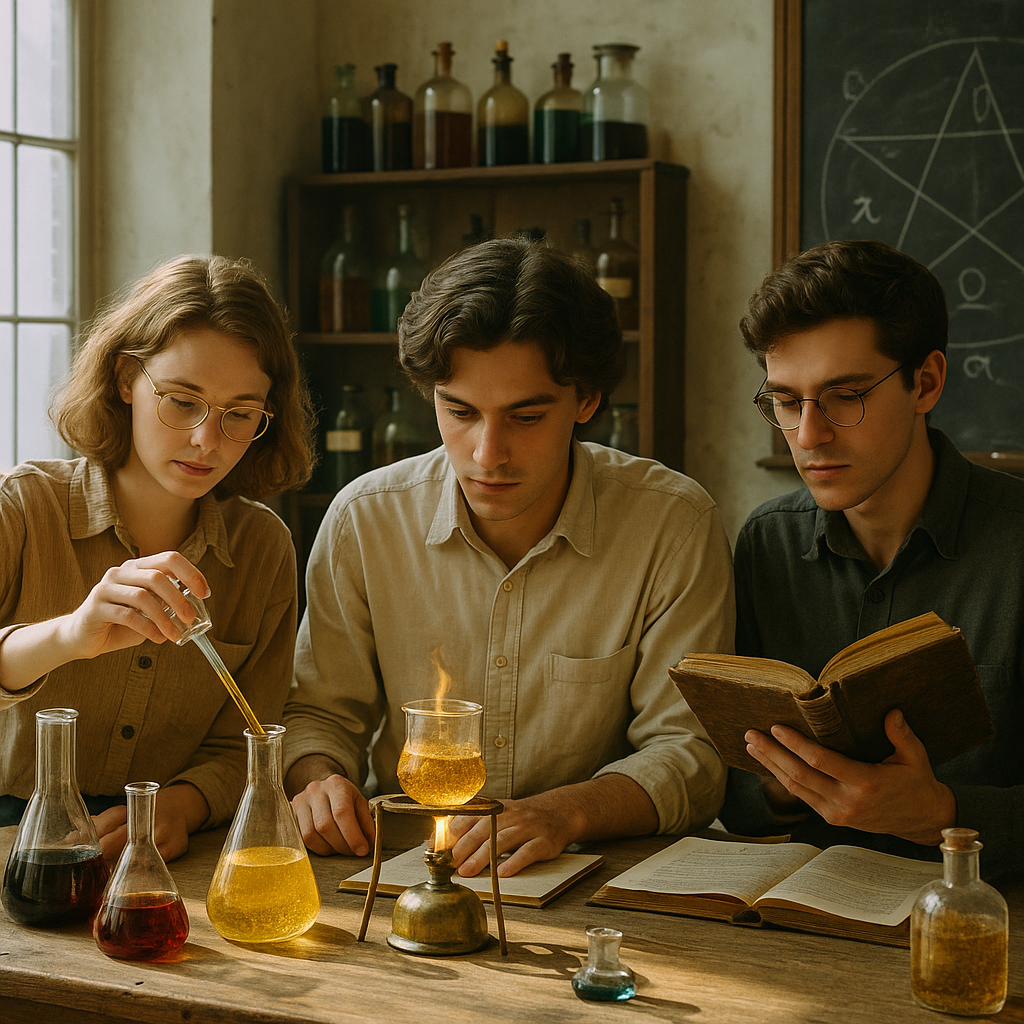
✧ Student Alchemy Cooperative
Quietly re-chartered in 2003 after a multi-decade hiatus prompted by a minor ceiling incident, the Student Alchemy Cooperative is Baitman’s most speculative scientific society. Rooted in the ancient academic traditions of material transformation, the Cooperative invites students to engage rigorously with potion theory, symbolic metallurgy, and the shifting philosophical nature of gold.
Weekly gatherings are held in the Old Science Annex, a space chosen for its ventilation and general lack of oversight. Sessions combine textual analysis of pre-Enlightenment manuscripts with practical experiments in thermal persuasion, chromatic vapor analysis, and the controlled frustration of modern chemistry faculty. Open flames are common, as are spirited debates over whether lead should want to become gold.
The Cooperative encourages interdisciplinary membership, particularly from students studying ethics, physics, folklore, or dream journaling. Protective eyewear is recommended, though some traditions require participants to “see with the inner eye.”
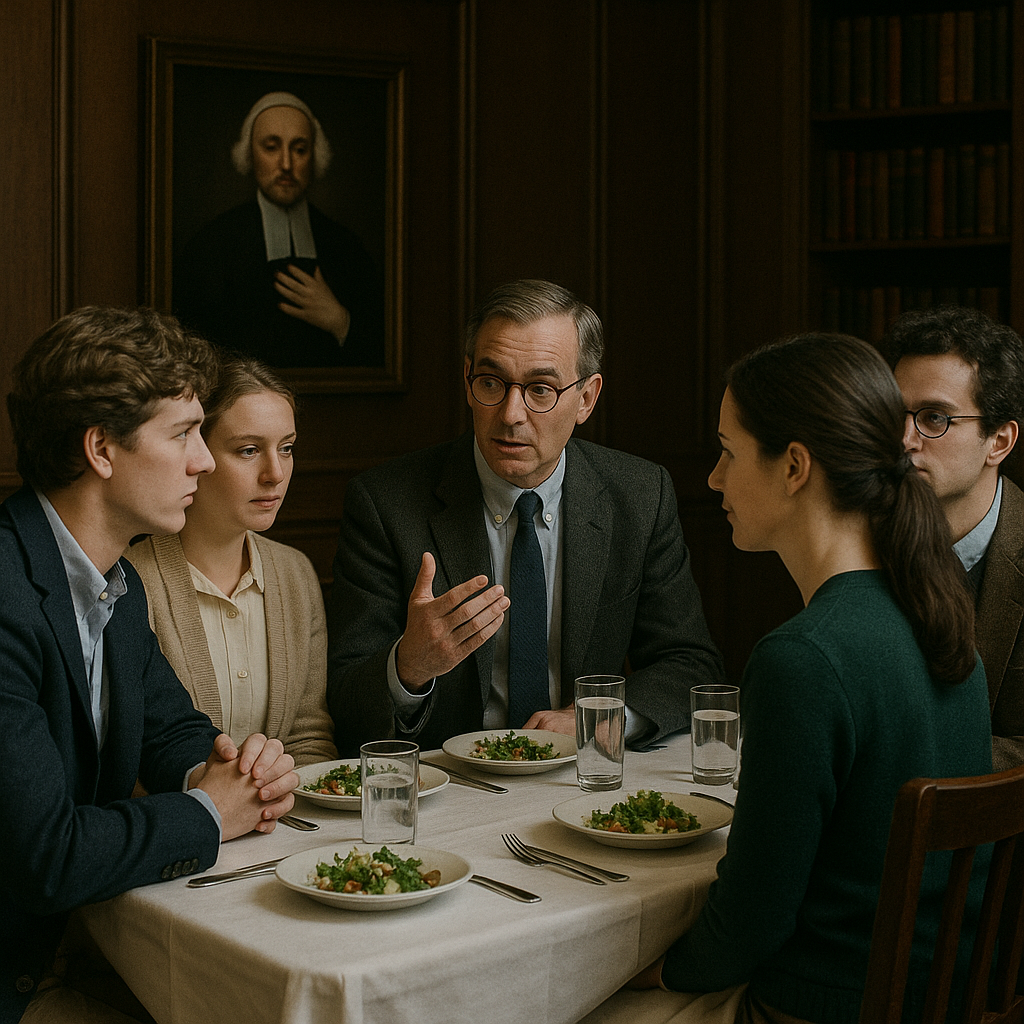
✧ Dining Philosophy Circle
Founded in 1952 as a lunchtime experiment in interdisciplinary reflection, the Dining Philosophy Circle explores the intersections of etiquette, appetite, and meaning. Each meeting begins with a shared meal and a rotating prompt, such as “Is hunger a form of knowledge?” or “What is the moral responsibility of a host when the soup arrives tepid?”
Discussions are guided but never rushed, and silence, when observed, is treated as a valid philosophical stance. Members are expected to chew thoughtfully, listen generously, and refrain from referencing Rousseau before the second course. Topics may range from historical debates on fasting to contemporary dilemmas involving shared condiments.
While meals remain modest by design, the intellectual fare is rich, layered, and occasionally over-seasoned. Students from all disciplines are welcome, though preference is given to those who can cite Plato without staining the tablecloth.

✧ Astrology Club
Established in 1978 following a disruptive Mercury retrograde in the Philosophy Department, the Astrology Club offers students a structured environment for the informal study of celestial influence. Weekly meetings feature rotating star chart interpretations, planetary retrospectives, and guided reflection on the moods of various moons, actual or symbolic.
While a telescope is technically available, its presence is considered largely ceremonial. Members are instead encouraged to rely on intuition, inherited charts, and that persistent feeling that “something is definitely happening with Venus.” Discussions often explore topics such as ethical forecast-giving, mutable energy mismanagement, and whether Scorpio should be allowed in leadership positions during eclipse weeks.
Students of all signs are welcome, though punctuality is gently discouraged.
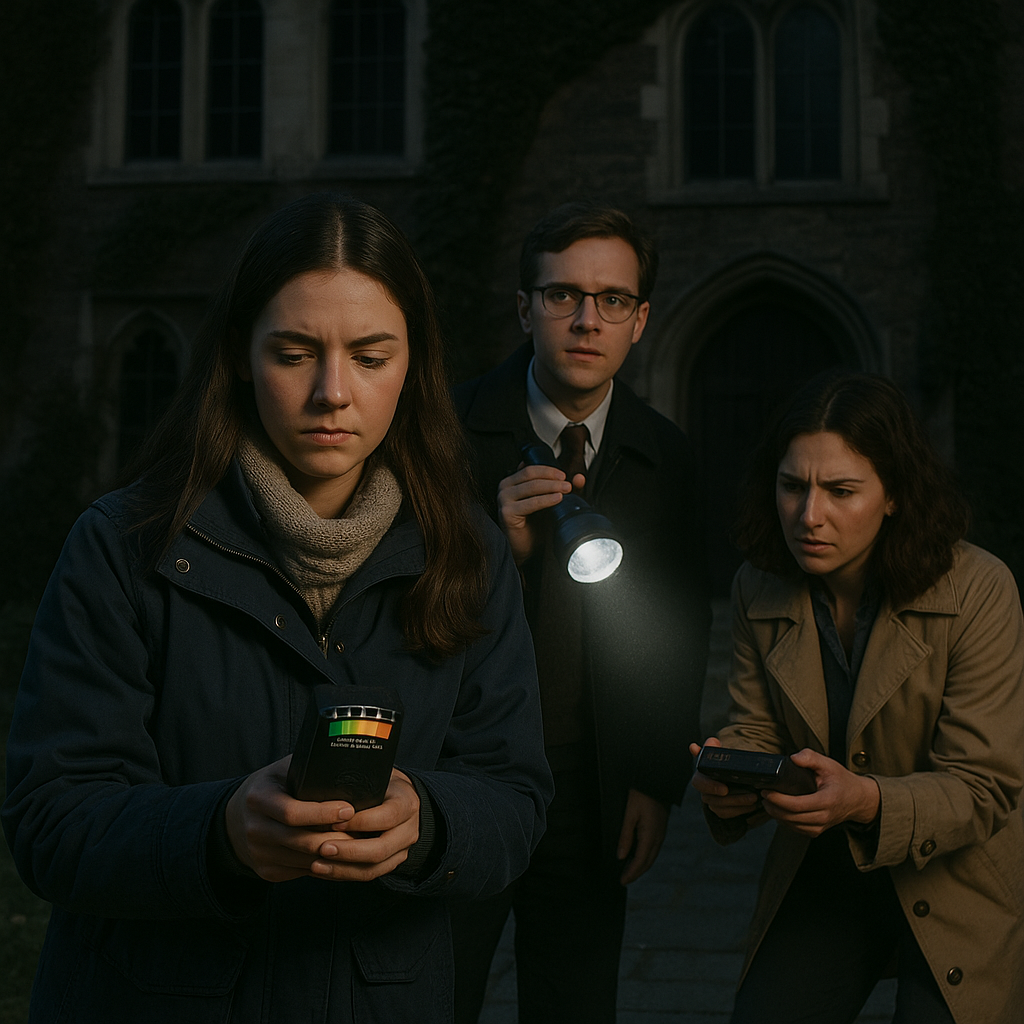
✧ Paranormal Explorers
Operating at the curious intersection of folklore, pseudoscience, and off-campus curiosity, the Paranormal Explorers conduct weekly field investigations into locations rumored to be haunted, cursed, or otherwise “energetically complex.” Outings typically involve EMF meters, grainy thermal imaging, and a healthy willingness to misinterpret shadows.
The club’s research methods are rigorous in tone, if not in practice. Members are trained to log cold spots, electronic malfunctions, and emotional disturbances, though the latter often correlate with midterms. Notable past expeditions include the West Library Basement Sigh, the Elm Hall Staircase Incident, and the ongoing case of the Vending Machine That Whispers.
In 2023, the club was briefly featured on the Oregon Public Access series Unverified & Regional, where their segment was praised for its “earnest tension” and “commendable flashlight discipline.” All students are welcome, though skepticism is tolerated only in measured, whisper-level doses.
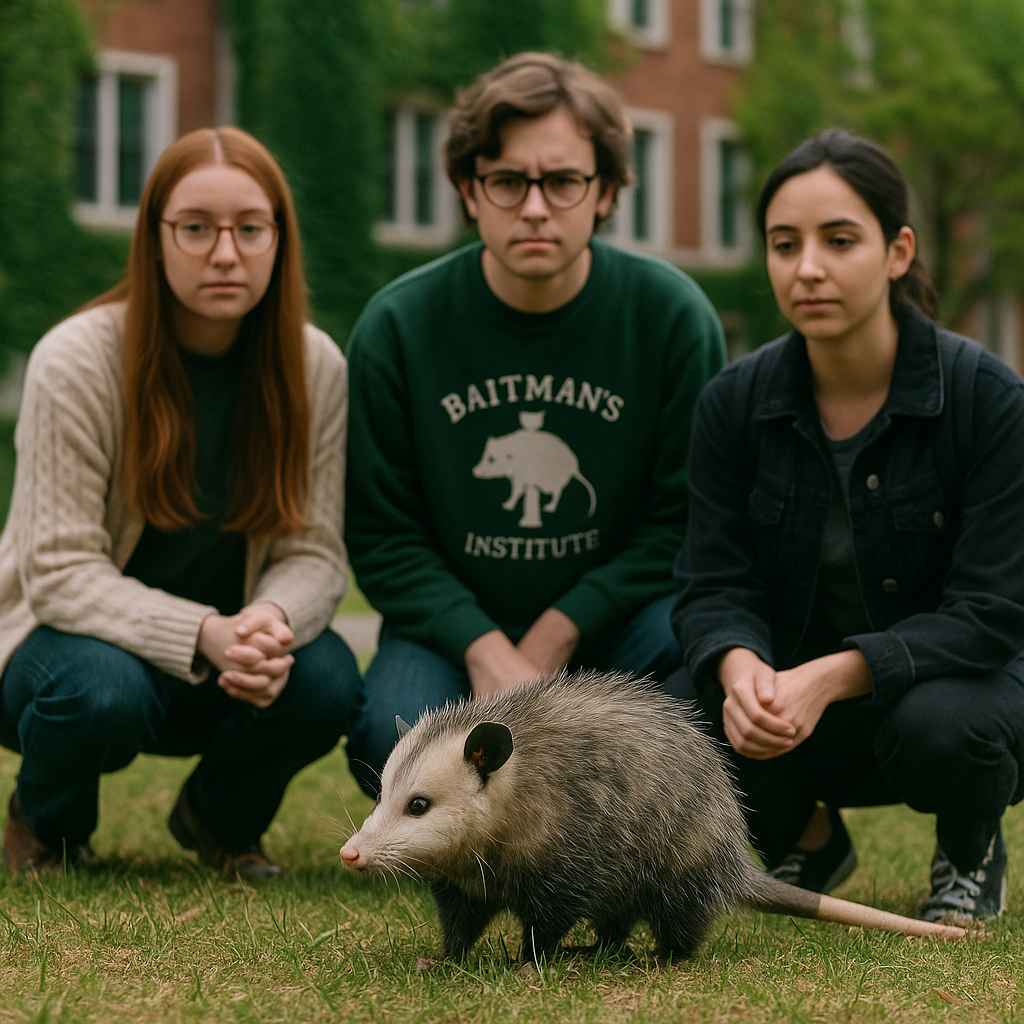
✧ The Possum Appreciation Society
Founded in 1995 following an unexpected encounter near the South Quad recycling bins, the Possum Appreciation Society is committed to fostering awareness, admiration, and appropriate distance. Members gather weekly to share sightings, study possum behavior, and reflect on the quiet dignity of North America’s only marsupial.
The society hosts seasonal observation circles, maintains a modest possum field journal, and distributes an annual pamphlet titled Hissing Is Not Aggression. While touching is discouraged, respectful staring is warmly encouraged.
In 2022, the club successfully petitioned for a designated habitat buffer behind East Hall, which remains unvisited; out of respect. All students are welcome, though loud enthusiasm is not.
